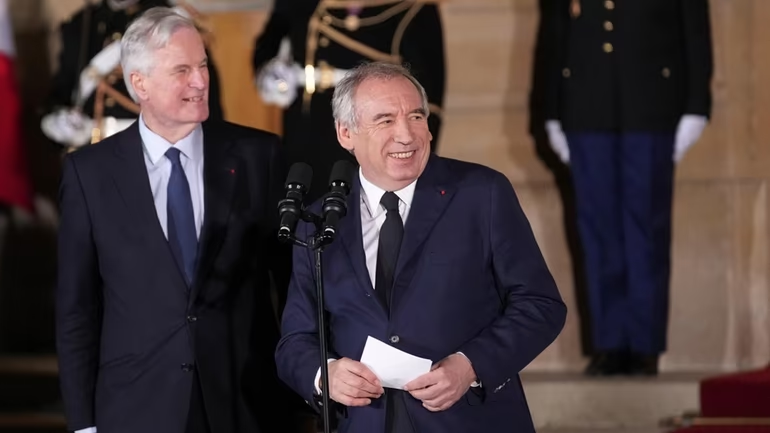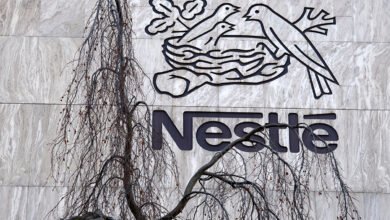
François Bayrou Named France’s New Prime Minister
France’s political landscape is changing again as President Emmanuel Macron names François Bayrou the country’s new Prime Minister. The decision emerges amid growing concerns about the nation’s 6.1% budget deficit and political turmoil in early 2024.
Macron’s choice represents a vital moment for French governance that could help stabilize his administration after recent parliamentary challenges. Bayrou brings his experience as a centrist politician and former Education Minister to the role. He takes charge during one of France’s most turbulent political times and must tackle a demanding mix of economic reforms and social policies right away.
Political Crisis Deepens in France
French political turbulence hit a milestone at the time Prime Minister Michel Barnier‘s government collapsed through a no-confidence vote – the first such occurrence in over 60 years.
Timeline of Government Instability in 2024
Summer 2024’s snap parliamentary elections created a fragmented political landscape. The New Popular Front (NFP) secured the largest parliamentary group with 182 seats. Macron’s centrist Ensemble gained 163 seats, while the National Rally obtained 143 seats. This three-way division made governance exceptionally challenging.
Factors Leading to Previous PM’s Resignation
Barnier’s government fell after his attempt to push an unpopular budget through special constitutional powers. MPs voted 331 strong to remove the government, which made his term the shortest in modern French history. The budget controversy revolved around:
- A proposed €60 billion in tax increases and spending cuts
- Social security financing bill pushed without parliamentary vote
- France’s concerning 6.1% budget deficit
Parliamentary Power Dynamics
Three major blocs now shape the complex power structure in parliament. The NFP stands as the largest group and has brought fresh dynamics to French politics. However, they couldn’t secure the 289 seats needed for an absolute majority. The National Rally’s position has grown more powerful, as shown by their key role in the no-confidence vote.
France’s economic stability hangs in balance as markets grow increasingly nervous about passing a viable 2025 budget. President Macron faces unprecedented challenges as he works to appoint a new prime minister.
Bayrou’s Political Journey
François Bayrou’s rise to France’s premiership marks the peak of a remarkable four-decade political career that started in the rural areas of southwestern France. A former Latin and Greek teacher who stepped into politics in 1982, Bayrou’s experience reflects the progress of French centrism.
From Education Minister to Prime Minister
Bayrou gained national recognition during his time as Minister of National Education from 1993 to 1997, where he served under both Socialist and conservative governments. His political path led him to three presidential campaigns:
- 2002: First presidential bid
- 2007: Secured 18.57% of the vote
- 2012: Final presidential campaign
Key Alliances and Political Philosophy
Bayrou’s role as president of the European Democratic Party and founder of the Democratic Movement (MoDem) helped him develop a distinctive centrist approach. His decision to support Emmanuel Macron in 2017, instead of pursuing his own presidential ambitions, played a vital role in Macron’s original victory. This alliance reshaped the scene of French politics, despite facing challenges in the following years.
Recent Legal Challenges and Acquittal
Bayrou’s brief time as Justice Minister in 2017 ended due to allegations about European Parliament funds. The court granted him the “benefit of the doubt” in February 2024, leading to his acquittal. This legal victory, though still subject to prosecutorial appeal, opened the way for his return to government service at a crucial moment in French politics.
Bayrou managed to keep strong ties to his roots as mayor of Pau while taking part in national and European politics. His appointment as Prime Minister brings extensive experience in building political bridges, which becomes significant given France’s current parliamentary situation.
Economic Challenges Ahead
France faces an urgent economic challenge as its budget deficit has reached 6.1% of GDP. This number is nowhere near the European Union’s 3% limit. The situation looks worse than the original forecasts of 4.4%.
Tackling the 6.1% Budget Deficit
France must cut around €40 billion from its budget to stabilize its debt-to-GDP ratio. The government struggles to implement these cuts while essential services need funding and political opposition grows stronger. Rising borrowing costs and increased market scrutiny of French debt make this challenge even more difficult.
Emergency Budget Measures
The government’s emergency budget law includes these critical provisions:
- Authorization to continue tax collection and state borrowing
- Essential state functions remain operational
- New tax initiatives and planned investments stay frozen temporarily
This emergency legislation puts military recruitment plans on hold and adjusts electricity tariffs back to pre-crisis levels. These steps provide temporary relief while officials develop a complete budget plan.
Effect on European Financial Markets
French bonds face unprecedented pressure as markets react negatively to these fiscal challenges. French bonds now trade at higher interest rates than Spanish bonds – something not seen since 2008. Market analysts warn that a spread of 80-100 basis points could lead to a downgrade to single A status.
Financial experts watch several risk factors closely. French companies might face higher financing costs compared to their European competitors. This applies especially to banking, infrastructure, utilities, and telecommunications sectors.
Opposition and Support Landscape
France’s deeply fractured parliamentary landscape shapes the political response to Bayrou’s appointment. The New Popular Front (NFP) secured 182 seats to become the largest bloc in the summer elections. Their reaction to the new prime minister reveals internal divisions.
Left-Wing Coalition Response
France Unbowed (LFI) dismissed Bayrou outright as “a continuation” of Macron’s policies. The Socialist Party adopted a more balanced stance and outlined specific requirements to extend their support:
- No forcing through laws without parliamentary votes
- Avoiding dependence on far-right support
- Rejection of cabinet positions
Far-Right Strategic Position
Marine Le Pen’s National Rally took a calculated approach by not immediately supporting a no-confidence vote against the new government. Le Pen emphasized that Bayrou must “listen to the opposition to build a reasonable and thoughtful budget”. This signals their willingness to cooperate under certain conditions.
Potential Coalition Building
Macron wants to prevent Le Pen from holding “make or break” power over the government. The president called for compromises among the country’s divided parties while excluding far-right and far-left parties from the original talks. A potential NFP alliance split could prove significant. Some moderate left parties showed openness to dialog while La France Insoumise maintains its firm opposition.
No single bloc holds a majority in this complex parliamentary setup. Bayrou must carefully guide between different political forces to build lasting support for his government’s initiatives.
François Bayrou steps into the role of Prime Minister during a crucial moment in French politics. The nation faces serious economic and political challenges. His years of political expertise and middle-ground stance make him the right person to tackle France’s worrying 6.1% budget deficit while dealing with a divided parliament.
This new government’s success depends on how well Bayrou can bring different political sides together. The political landscape shows a clear three-way division between the New Popular Front, Macron’s Ensemble, and the National Rally. His history of collaboration with different political groups suggests he might bridge these gaps, though major challenges lie ahead.
The economy needs immediate attention. Markets keep a close eye on how France handles its finances and bond performance. Bayrou’s team must find ways to cut €40 billion from the budget. They need to do this while keeping social programs intact and maintaining essential services. These decisions will impact both France’s internal politics and its role in the European Union.
The road ahead offers both possibilities and obstacles for Bayrou’s leadership. His success in guiding reforms while balancing opposing interests will determine if France can break free from its political deadlock and rebuild its economic stability.






